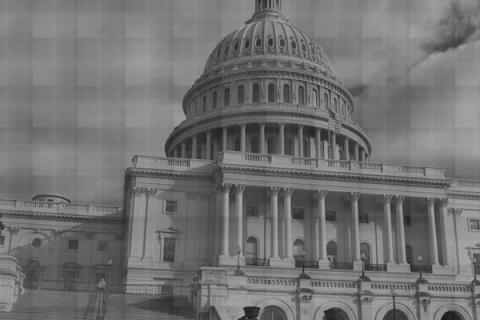 Despite the electorate's discontent with the federal government's handling of issues like the U.S. economy, its desire for political change appears to be evident as interest in national politics, in a non-election year, remains high.
Despite the electorate's discontent with the federal government's handling of issues like the U.S. economy, its desire for political change appears to be evident as interest in national politics, in a non-election year, remains high.
The new Gallup poll shows that Americans' interest in national politics is holding at the same elevated level seen in 2009 after record high attention paid in 2008. More than 1 in 3 Americans, at 35%, say they're following national political news "very closely." That's a greater percentage than what's been recorded in non-election years prior to 2008, steadily inching up 5 percentage points from 30% in September 2007 and 27% in September 2003.
Gallup asked the following to a random sample of 1,017 adults aged 18+, living in all 50 states and the District of Columbia:
"Overall, how closely do you follow news about national politics- very closely, somewhat closely, not too closely, or not at all?"
In addition to those following very closely, 45% of Americans say they're following national politics "somewhat closely" and 15% are following it "not too closely." Gallup notes that the combined 80% following very or somewhat closely is similar to 2004.
Conservatives, those 65 and older, Republicans, and postgraduates have registered double-digit increases, since 2007, in the category of being likely to pay close attention to national politics. Besides Democrats and liberals, among other subgroups, the smallest positive change of those following national political news very closely was seen among Independents, up +2 points in September 2011 from Sepetember 2007.
While Gallup notes there's been little increase in the percentage of Independents demonstrating an interest in what goes on in national politics, this doesn't necessarily suggest that they're an irrelevant part of the electorate. Another way to interpret the poll's data is that interest is up in a non-election year even among Independents.
In this latest study, Gallup factors in dissatisfaction with the country's direction, the high level of worry about the economy, and historic dissatisfaction with how the nation is being governed as potential explanations for the rise of public interest in national politics. In comparison to how members of both major parties feel about these issues, it's the Independents that have had some of the most negative reaction toward how Republicans and Democrats have performed in each of these areas. In addition, with conservatives paying more attention to national issues than Independents in this poll, Gallup surmises that one of the reasons they are more engaged is because of the existence of independent-minded, grassroots movements like the Tea Party.
Gallup conducted this poll through a series of telephone interviews from September 8, 2011- September 11, 2011 with 95% confidence and a maximum margin sampling error of +/- 4 percentage points.
